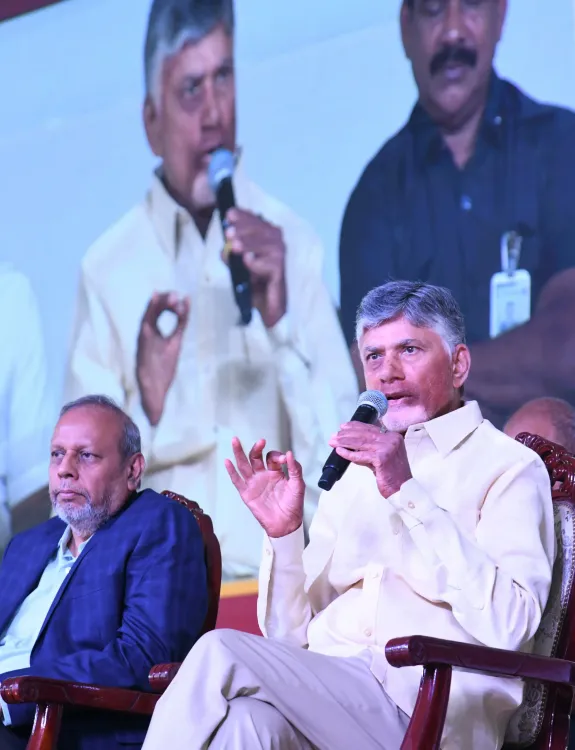How is Andhra Pradesh Planning to Boost Population Growth?

Synopsis
Key Takeaways
- Andhra Pradesh is shifting its focus from population control to management.
- New incentives are being introduced to encourage larger families.
- Current fertility rates in the state are concerningly low.
- The Chief Minister emphasizes the economic benefits of a growing population.
- A national perspective on population dynamics is crucial for future planning.
Amaravati, July 11 (NationPress) Emphasizing that a robust population is an invaluable asset, Andhra Pradesh's Chief Minister N. Chandrababu Naidu revealed plans for a comprehensive policy aimed at promoting population growth. This initiative will include incentives for families with more children. He urged for an increase in the state's fertility rate to avert a potential human resources crisis.
During his address at the Amaravati Summit in honor of World Population Day, he noted that a nation’s population stands as its strongest economic resource.
Naidu reflected on the fading tradition of joint families, stating, “Previously, we provided 5 kg of rice per individual in a household, totaling 25 kg for a family of five. Now, we’re contemplating offering over 50 kg for families with ten members.”
The Chief Minister also highlighted the escalating worries regarding the decreasing population in South India. “In the future, while the number of Parliament seats may rise, southern states could experience diminished representation,” he cautioned.
He remarked that while the state previously launched a movement for population control in united Andhra Pradesh, the current priority is effective population management.
He voiced concerns about the global population surge alongside declining birth rates and a shrinking youth demographic, while the elderly population continues to grow. He pointed out that stagnation occurs in regions facing aging issues. Even in developed nations, fertility rates are on the decline.
“Once the fertility rate drops below 2.1, population decline occurs. In India, states like Bihar stand at 3.0, while Andhra Pradesh is at 1.7. To sustain population stability, achieving a rate of 2.1 is crucial,” he explained.
Naidu expressed that waning population growth could hinder economic development. A poll conducted at the summit revealed that 67.41% of participants preferred having two children, while 12.34% favored one child, and 19.88% supported three. He noted the reluctance among young couples to have children, attributing it to the rising cost of living.
The Chief Minister stressed that India’s competitive edge against developed nations lies in its population. “Once viewed as a major issue, I, as CM before 2004, promoted family planning and even enacted a law disqualifying individuals with more than two children from local body elections. However, the current situation necessitates amending this law to permit those with larger families to contest. A nation is defined not just by its geography, but by its people,” he stated.
He also mentioned how various countries are introducing incentives to promote childbirth, offering examples from around the world.










